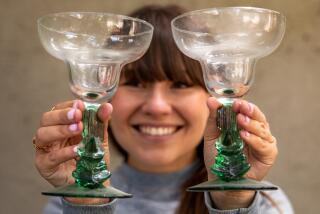Using Caution With Mom’s Collection
- Share via
Question: My mother recently died leaving behind an extensive coin collection. This has presented a quandary for the family. We want to sell it but in talking with our banker, who handles estates and the liquidation of same, it seems we could run into a lot of problems i.e., unscrupulous appraisers who appraise it low and then offer to buy it, a lengthy appraisal period wherein the appraiser might switch good coins for those of lesser value, reputable auction houses that we might want to use but who don’t appraise . . . and on and on. The collection consists of coins, paper currency, proofs and a regular potpourri of items. Would you advise the best procedure a family in our situation should take?--A.H.G.
Answer: I must say, you seem to have a very cautious banker. He’s pointed out pitfalls that even master thief Willie Sutton might have overlooked.
But I can sympathize with you and others in your situation. It’s difficult to sell anything with which you are unfamiliar.
So, what do you do? First, list your coins by denomination and date. Separate the gold from the silver and copper. Call several coin dealers. Ask them if they make appraisals. Many do, and a charge of $75 to $100 an hour is not unreasonable. They’ll probably want to know what type of coins are involved to see if it’s worth your while and their while.
Tell them you want the coins appraised at the bank. In your presence no way can anyone switch a coin for a lesser coin without seeing your coin first, especially if they don’t know the date and mint mark. Demand a written appraisal. You can then decide whether to sell the coins to a dealer who made the appraisal (he may not be interested) or whether to repeat the procedure with other dealers.
Auctions are a possibility, as your banker has indicated, although I don’t know why he implies auction houses are reputable but coin dealers aren’t. I think you’ll find both reputable and disreputable dealers and auctioneers. Some coin dealers also conduct auctions. Be sure to compare commissions and services.
One more point: Be sure you understand the appraisal value of your coins. Are they appraised at market value, catalogue value or actual value? Coin prices work like the stock market. There is a bid and ask price. Dealer-to-dealer prices are wholesale; dealer to customer prices are retail. A dealer will not pay retail, which is why you have to know just what the appraisal represents.
Coin News
The Double Ducat, first issued in 1607 and last issued in 1867, is available again from the Netherlands. The 1988 version (pictured) is slightly larger than a quarter, weighs 6.988 grams of .983 fine gold and is unchanged in its specifications for more than three centuries. It is available for $185 plus $2.75 for handling from the Dutch Mint’s North American office, P.O. Box 1057, Clifton, N.J. 07014; telephone (201) 471-1441. The ordering deadline is Oct. 31.
A new credentialing program for coin dealers has been instituted by the Industry Council for Tangible Assets, a national trade association. Described as the first national program of industry regulation, it is designed to protect consumers by adhering to certain standards, including binding arbitration to resolve disputes. A free directory of dealers who have so far been accredited is available from the Coin and Bullion Dealer Accreditation Program, 25 E Street, N.W., 8th Floor, Washington, D.C. 20001; telephone (202) 783-3500.
The 400th anniversary of the defeat of the Spanish Armada by the English fleet is being marked by a medal struck in sterling silver and bronze by the British Royal Mint. Sterling medals are $125; bronze $59. Order from the British Royal Mint, c/o Barclays Bank of New York, P.O. Box 2570, New York, N.Y. 10164-1060; telephone (800) 221-1215.


